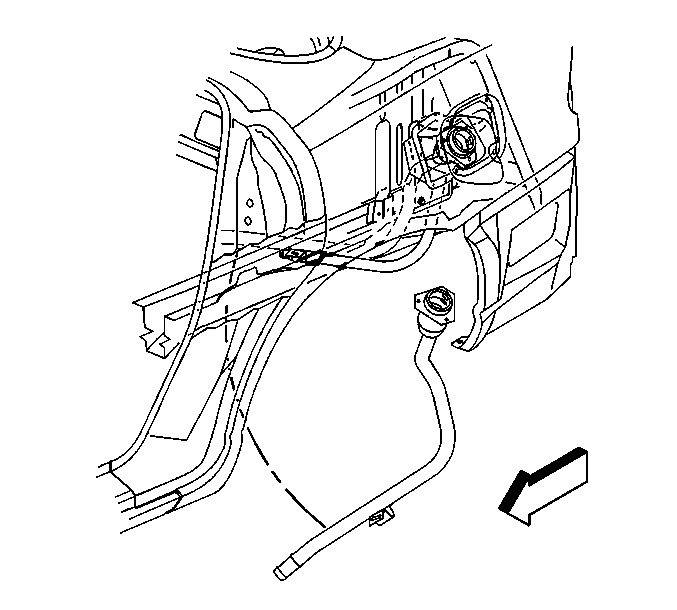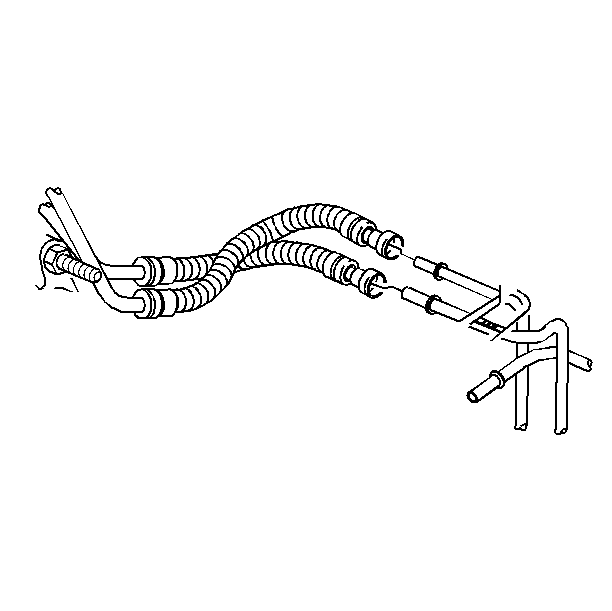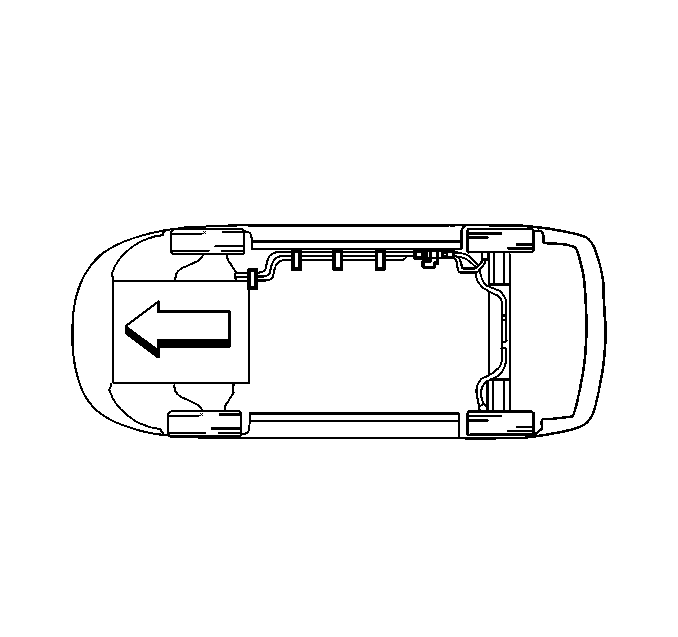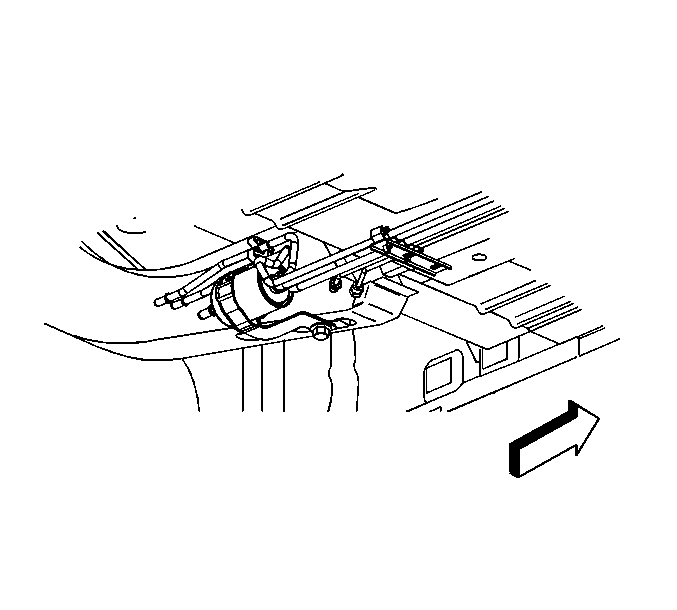
Caution: In order to reduce the risk of fire and personal injury observe the
following items:
| • | Replace all nylon fuel pipes that are nicked, scratched or damaged
during installation, do not attempt to repair the sections of the nylon fuel
pipes |
| • | Do not hammer directly on the fuel harness body clips when installing
new fuel pipes. Damage to the nylon pipes may result in a fuel leak. |
| • | Always cover nylon vapor pipes with a wet towel before using a
torch near them. Also, never expose the vehicle to temperatures higher than
115°C (239°F) for more than one hour, or more than 90°C (194°F)
for any extended period. |
| • | Apply a few drops of clean engine oil to the male pipe ends before
connecting fuel pipe fittings. This will ensure proper reconnection and prevent
a possible fuel leak. (During normal operation, the O-rings located in the
female connector will swell and may prevent proper reconnection if not lubricated.) |
Notice:
| • | Do not attempt to straighten kinked nylon pipes. Replace any kinked
nylon pipes in order to prevent damage to the vehicle. |
| • | Do not attempt to repair sections of nylon pipes. Replace damaged
nylon pipes. |
| • | Replace the vapor pipes with original equipment or parts that
meet GM specifications. |
| • | Replace the vapor hoses with original equipment or parts meeting
GM specifications. Use only reinforced fuel-resistant hose identified with
the word Fluoroelastomer or GM 6163M on the hose. |
Notice: Always re-attach the fuel lines and fuel filter with all original type
fasteners and hardware.
Do not repair sections of fuel pipes.
Notice:
| • | Secure the fuel pipes to the frame in order to prevent chafing.
Maintain a minimum of 13 mm (½ inch) clearance around
a pipe in order to prevent contact and chafing. Maintain a minimum of 19 mm
(¾ inch) around any moving part. |
| • | Do not allow the fuel pipes to come into contact with the fuel
tank or underbody. |
Important: If fuel line bundle attaching hardware is damaged or broken replace
the hardware.
- Install the following pipes and install the attaching hardware to the
pipes as noted during removal:
| • | The evaporative emission (EVAP) pipe |
- Remove the caps from the following pipes:
| • | The in-pipe fuel filter pipe |
- Connect the fuel return pipe quick-connect fitting in front of
the fuel tank. Refer to
Plastic Collar Quick Connect Fitting Service
.
Notice: Use the correct fastener in the correct location. Replacement fasteners
must be the correct part number for that application. Fasteners requiring
replacement or fasteners requiring the use of thread locking compound or sealant
are identified in the service procedure. Do not use paints, lubricants, or
corrosion inhibitors on fasteners or fastener joint surfaces unless specified.
These coatings affect fastener torque and joint clamping force and may damage
the fastener. Use the correct tightening sequence and specifications when
installing fasteners in order to avoid damage to parts and systems.
- Reconnect the fuel feed pipe threaded fitting at the outlet of the in
pipe fuel filter.
Tighten
Tighten the fitting to 30 N·m (22 lb ft).
- Lower the vehicle.

- Connect the fuel feed,
and fuel return pipe quick-connect fittings in the engine compartment. Refer
to
Plastic Collar Quick Connect Fitting Service
.
- Add fuel and reinstall the fuel tank filler pipe cap.
- Connect the negative battery cable. Refer to
Battery Negative Cable Disconnection and Connection
in Engine
Electrical.

- Inspect and make sure all of the fuel pipe bundle clips, and fasteners
are properly installed.
- Inspect the fuel system for leaks by performing the following
steps:
| 10.1. | Turn ON the ignition for 2 seconds. |
| 10.2. | Turn OFF the ignition for 10 seconds. |
| 10.3. | Turn ON the ignition. |
| 10.4. | Inspect for fuel leaks. |





